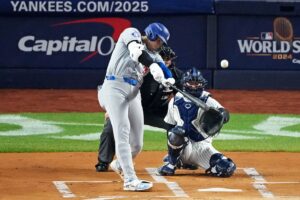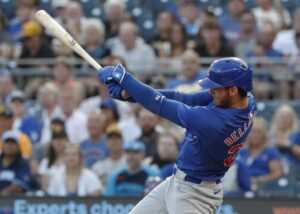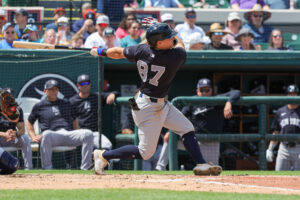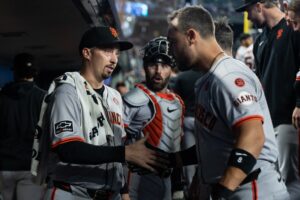2018 most likely will see the Los Angeles Dodgers have some sort of celebration honoring the 30th anniversary of the 1988 World Champions. While a ceremony honoring that squad will certainly be a fun, nostalgia filled affair, it should be a bittersweet reminder of the sting that was the loss in the 2017 World Series. Meaning it has now been 28 years and counting since the last time the Dodgers were champions of the baseball world.
Los Angeles Dodgers Postseason Woes Since 1988
While looking at the Dodger record in the last 28 seasons, labeling the drought as a “fall from grace” is a gross overstatement. But it is worth noting that 1988 was the latest triumph of one of the National League’s preeminent, and cornerstone franchises since the 1940s. Heading into the 1989 season, only the New York Yankees had won more pennants, and only the Yankees, St. Louis Cardinals, and Philadelphia/Oakland Athletics had won more World Championships.
Since then, (including pre-1903 League titles) the Cardinals and even their nearly 130-year old intrastate rival the New York/San Francisco Giants have overtaken their league pennant total, and the Boston Red Sox and Giants have overtaken them in the World Champions category. While still as popular, revenue generating, and historically significant as ever, the Dodger brand today does seem to be living more on past glories just as much as it is on the success of the their current “near misses” run.
LAST YEARS OF O’MALLEY FAMILY OWNERSHIP
Despite the World Championship, 1988 was more of a one-hit-wonder title win. The Dodgers had come off back-to-back 73-win seasons, which effectively ended the run that had produced the NL pennant winners in 1974, 1977 and 1978, and the 1981 World Champions, as well as NL West champions in 1983 and 1985. They would fall back down to 77 wins in 1989.
The 1990s did get off to a decent enough start though, with back-to-back second place finishes, but things came crashing down on the Dodgers in 1991 where they narrowly missed the franchise’s first 100 loss season since 1908, but suffered their first last place finish since 1905. Things seemed to turn the corner for a new era of Dodger Blue as the 1990s went forward though. 1994 would see the team lead the NL West at the time of the player’s strike, and in what would be manager Tommy Lasorda’s 19th and final full season, the Dodgers would have a first-place finish in 1995. The following season would see the Dodgers lose out to the San Diego Padres for the division crown by a game, but the team was just good enough for the NL Wild Card. Unfortunately, the Dodgers would be swept in three straight in the NLDS both years. 1995 it was by the Cincinnati Reds, and in 1996 it was to the eventual NL Champion Atlanta Braves.
On the field the rest of the decade seemed pedestrian for the Dodgers, with two more over .500 seasons, and the dismantling of the Eric Karros and Mike Piazza era towards the end of the decade, and into the start of the 2000s seem much like the retooling the Dodgers had done frequently over their epic stretch since the end of World War II. But it was in behind the scenes intrigue where the Dodgers were starting to experience some very interesting times.
NEWS CORP. AND MCCOURT YEARS 1998-2011
In 1998 Peter O’Malley and family would sell the franchise to Rupert Murdoch’s News Corp. This would end a family ownership run that went back to 1950. The Murdoch era, while only roughly six seasons, was quite turbulent. While News Corp would start their tenure trading fan-favorite Piazza, their most notable contribution to Dodger lore would be bloated yearly team payrolls, with the most notable overspending happening with pitchers such as Kevin Brown, and probably most infamously, Darren Dreifort. While no postseason appearances happened during this era, the Dodgers were still an over .500 and middle of the pack team.
2004 would see the return of the Dodgers to postseason play, however it would see the introduction of a Dodger owner who probably ranks second behind Walter O’Malley in terms of most reviled in franchise history. Boston real estate developer Frank McCourt would purchase the team early in 2004, and hired former Athletics assistant GM Paul DePodesta to bring a Moneyball approach to LA. The approach McCourt seemed to take was to pare down the payroll that had ballooned during the News Corp years.
This 2000s Sabermetrics style approach would lead to a division title in 2004, and winning the Wild Card slot in 2006 (following a disaster of a 2005 that wound up costing DePodesta his job). Unfortunately, the Dodgers would be bounced out of the NLDS by the Cardinals in four games in 2004, and swept in three straight by the New York Mets in 2006.
By decade’s end, it had looked like the Dodger ship was righted again, under GM Ned Colletti and manager Joe Torre. This combination would lead the Dodgers to two straight division titles in 2008 and 2009. Both years they would finally get past the Division Series round, sweeping the Chicago Cubs in 2008, and sweeping the Cardinals in 2009. However, both years would see the Dodgers defeated by the Philadelphia Phillies, oddly in five games both years, in the NLCS.
Things would fall apart though as the 2010s were starting. First in late 2009, with the separation announcement of McCourt and his wife of 30 years, and Dodger CEO, Jamie McCourt. The two would begin messy divorce proceedings that, despite assurances from the two, would drag the franchise into the fray. In April of 2011 Major League Baseball Commissioner Bud Selig stepped in to take control of the franchise. This was due mostly to funds being transferred from the Dodgers to be used for McCourt’s personal usage, which resulted in several instances of missing payroll payments. Later in the summer the Dodgers filed for Chapter 11 bankruptcy as the divorce proceedings were nearing their conclusion.
The McCourt era was put out of its misery on November 1st, 2011 when McCourt and MLB agreed to sell the team by Opening Day 2012. Oddly, despite the sheer disaster that was behind the scenes, on the field the Dodgers seemed rather pedestrian. Going 80-82 in 2010, and 82-79 in 2011. By the spring of 2012, the franchise was sold to Guggenheim Baseball Management LLC, a group that included long time Braves executive Stan Kasten, and Los Angeles Laker icon Magic Johnson.
GUGGENHEIM ERA 2012 TO PRESENT
The Guggenheim era has seen a return to the big spending Dodgers, though with a mix of the Moneyball philosophy of the McCourt era. Despite a first season that would see the Dodgers go 86-76, good for second in the NL West, they have since run off five-straight division titles (which gives the Dodgers 17 total titles good for a tie with the Braves and third behind the Cardinals and Yankees), which is now the fifth longest consecutive division title run in baseball’s history.
Over the course of the last five seasons the Dodger pitching staff, led by three time CY Young Award winner and 2014 NL MVP, Clayton Kershaw, has continued to be a franchise hallmark, and the Dodgers have been consistently presenting a strong lineup that continues to be added to, either by young talents like 2016 NL Rookie of the Year Corey Seager and 2017 Rookie of the Year Cody Bellinger, or acquired talents like Adrian Gonzalez and Justin Turner.
This however has not been translating to overall postseason success. After dispatching the Braves in a four-game NLDS in 2013, the Dodgers were dispatched in the NLCS by the Cardinals in a six-game series. The Cardinals would knock the Dodgers out of the 2014 postseason as well, though in four games.
That exit would cause a change in the front office as Colletti was removed in favor of former Tampa Bay Rays General Manager Andrew Friedman, who was installed as President of Baseball Operations, with a mandate to reshape the farm system. 2015 would see the Dodgers get ousted by the Mets in a five-game NLDS, after which would see the team part ways with Don Mattingly, who had been manager since 2011. In his place the Dodgers hired Dave Roberts, who remains the Dodger manager.
2016 would see the Dodgers advance to the NLCS via a five-game NLDS victory over the Washington Nationals, but lost to the Cubs in a six-game NLCS. And in 2017 of course, following a sweep of the Arizona Diamondbacks in the NLDS, and knocking off the Cubs in five games in a rematch NLCS, the Dodgers lost a seven game classic World Series to the Houston Astros.
LAST WORD
Generally, you never know what your team’s fortunes are going to be. However, there is nothing to suggest that the Dodgers will not find themselves in the same spot, or even better some 10 months from now. So, could this be the year? Chances are though, the Dodger drought, now the sixth longest since the last championship in MLB, will probably be over sooner, rather than later.
Main Photo
Embed from Getty Images






